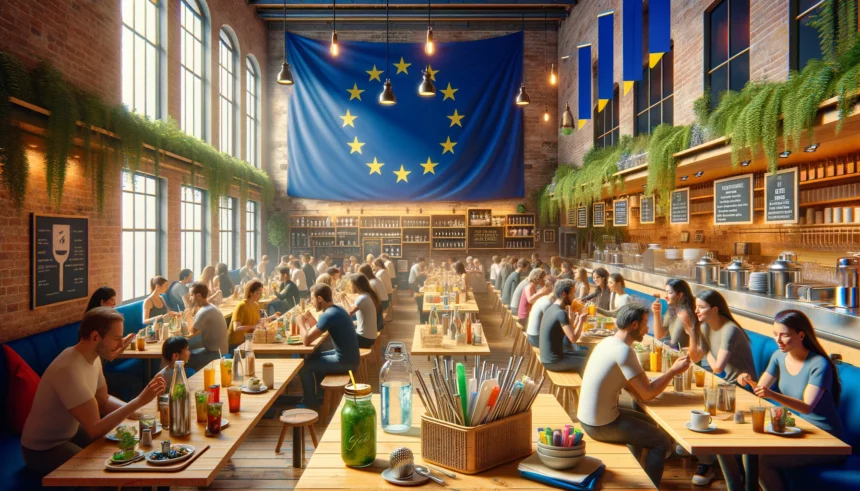In a groundbreaking move to combat plastic waste, the European Union has reached a consensus to eliminate single-use plastic packaging in cafes and restaurants by 2030. This decision, made on March 4th, signifies a major advancement in the EU’s environmental initiatives, particularly in reducing packaging waste across the bloc.
The agreement, forged among the 27 EU nations and lawmakers, includes a draft text setting ambitious targets to decrease packaging waste. By 2030, the EU aims to cut packaging waste by five percent relative to 2018 levels, with further reductions of 10 percent by 2035 and 15 percent by 2040. These measures are integral to the EU’s Green Deal, a comprehensive framework designed to help the bloc achieve its climate objectives.
Belgium, currently presiding over the rotating EU presidency, highlighted the regulation’s dual focus: minimizing packaging waste and upholding the highest standards of waste management. This initiative underscores the EU’s commitment to sustainability and environmental stewardship.
The decision to ban single-use plastics faced significant challenges, with intense lobbying efforts from major fast-food corporations and the paper industry. Opponents argued that alternatives such as cardboard packaging, which can be recycled or sourced from sustainable forests, offer an eco-friendlier solution than plastics.
However, the ban will extend beyond plastic packaging in the food service industry to include unprocessed fresh fruits and vegetables, single portions of condiments and sugar, miniature toiletries, and shrink-wrap for suitcases at airports. Exceptions will be made for ultra-lightweight plastic bags.
Highlighting the innovative aspect of this legislation, Ms. Frederique Ries, a key advocate for the bill in the EU Parliament, noted, “For the first time in an environmental law, the EU is setting targets to reduce packaging consumption, regardless of the material used.” Ries calls on all stakeholders, including industrial sectors, EU countries, and consumers, to contribute to the effort to combat excessive packaging.
Additionally, the new rules mandate that by 2030, establishments offering drinks and takeaway food must strive to provide 10 percent of their products in reusable packaging. They are also encouraged to allow consumers the option to use their own containers.
An important health-related provision in the legislation is the ban on “forever chemicals” in food-contact packaging. These substances, linked to various health issues including cancer, pose significant risks, and their prohibition represents a significant victory for consumer health in Europe, according to Ms. Ries.
The agreement is set to be enacted into law following formal approval by EU member states and the Parliament, marking a significant leap forward in the EU’s environmental and health protection efforts.
















